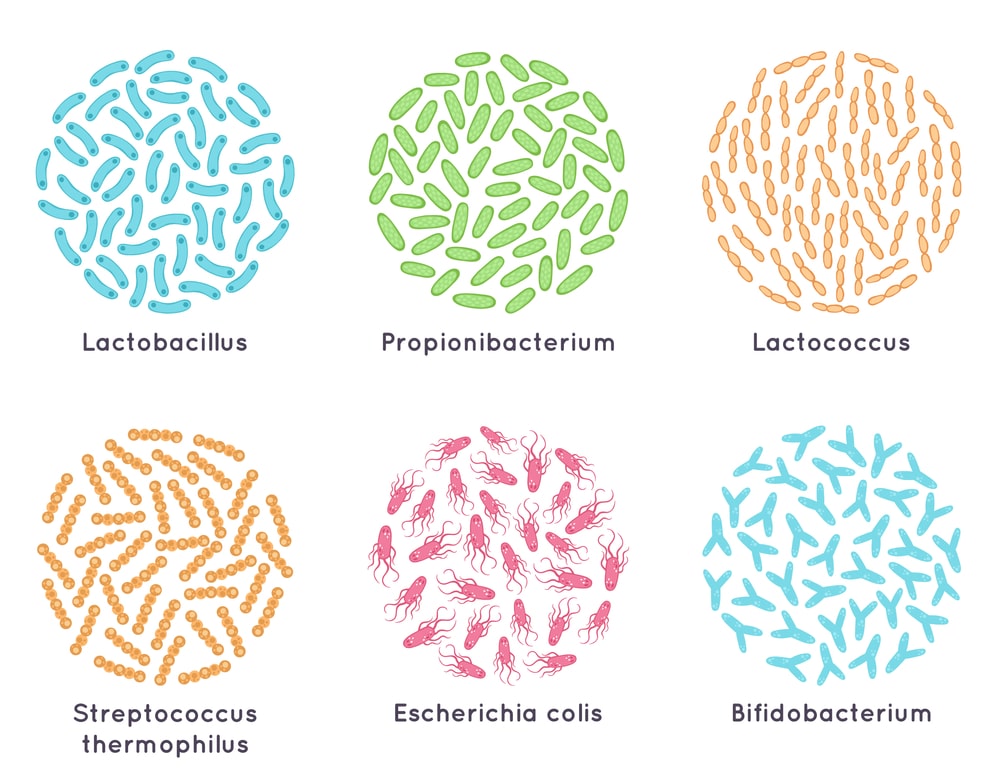When you think about keeping your mouth healthy, you probably picture brushing, flossing, and regular visits to the dentist. While these are absolutely essential, there’s a fascinating, invisible world in your mouth that plays a huge role in your overall oral wellness: your oral microbiome. Just like the gut has its balance of bacteria, so does your mouth. And when that balance is off, it can lead to common issues like bad breath, cavities, and gum problems. But what if there was a natural way to help support this delicate ecosystem? Enter oral probiotics. Much like the probiotics you might take for digestive health, oral probiotics introduce beneficial bacteria to your mouth to help maintain harmony and keep the less-friendly bacteria in check. This offers a complementary, natural approach to achieving a healthier mouth from the inside out.
In this article, we’ll explore the tiny world living in your mouth, how probiotics can influence it, which specific strains show promise, and how you can integrate them into your routine for a naturally balanced smile, advised by the best dentist in Markham.
Understanding Your Oral Microbiome: The Foundation of Oral Health
Your mouth is home to trillions of microorganisms – a bustling community of bacteria, fungi, and viruses collectively known as the oral microbiome.
While some of these microbes are linked to dental diseases, many others are beneficial, playing crucial roles in protecting you from pathogens, aiding digestion, and even supporting your immune system.
Think of it like a garden: you want a healthy balance of various plants and beneficial organisms to thrive, which naturally keeps weeds and pests under control. In your mouth, a balanced microbiome (known as eubiosis) helps maintain oral health.
However, when the balance shifts, often due to factors like diet (high sugar intake), poor hygiene, stress, or illness, harmful bacteria can take over.

This imbalance, called dysbiosis, is the root cause of many common oral health problems, including:
- Cavities: Caused by bacteria (like Streptococcus mutans) that feed on sugars and produce acids that erode enamel.
- Gum Disease (Gingivitis and Periodontitis): Inflammation and infection of the gums and bone supporting teeth, often triggered by plaque bacteria.
- Bad Breath (Halitosis): Can be caused by volatile sulfur compounds produced by certain bacteria.
- Oral Thrush: An overgrowth of the Candida fungus.
Restoring and maintaining the natural balance of this microbial garden is key to preventing these issues.
How Oral Probiotics Work: A Natural Balancing Act
Oral probiotics introduce beneficial bacteria directly into the mouth to help support a healthy microbiome.
They work through several natural mechanisms:
- Competitive Exclusion: Beneficial probiotic bacteria compete with harmful bacteria for space and nutrients on oral surfaces like teeth, gums, and the tongue. By occupying these niches, they can effectively crowd out the bad guys, reducing their ability to colonize and cause problems.
- Producing Beneficial Substances: Some probiotic strains produce compounds like bacteriocins or organic acids that can inhibit the growth of specific harmful bacteria or reduce the pH to an environment where they cannot thrive.
- Modulating the Immune Response: Certain probiotics can interact with the oral immune system, helping to reduce inflammation (like in gum disease) and potentially enhancing the body’s natural defenses against infection.
- Forming Protective Biofilms: Beneficial bacteria can form their own biofilms, which can act as a barrier against pathogenic bacteria.
By supporting these natural processes, oral probiotics help tip the scales back towards a state of eubiosis, promoting a healthier oral environment.
Key Probiotic Strains for a Healthy Mouth (with Scientific Backing)
Not all probiotics are created equal, and the benefits are strain-specific.

Research has highlighted several key probiotic strains that show promise for targeting oral health issues:
- Streptococcus salivarius (especially K12 and M18): Found naturally in the mouths of healthy individuals. S. salivarius K12 is often associated with reducing the bacteria that cause bad breath and supporting throat health. S. salivarius M18 is studied for its potential to help reduce cavity-causing bacteria and support enamel health.
- Lactobacillus reuteri : Studies suggest this strain can help reduce inflammation and bleeding in the gums, making it beneficial for supporting periodontal health.
- Lactobacillus rhamnosus : Research indicates this strain may help reduce the levels of cavity-causing bacteria like S. mutans and support gum health.
- Streptococcus A12 : This specific strain has been identified for its ability to produce compounds that specifically target and inhibit the growth of S. mutans, the primary bacteria responsible for cavities.
- Streptococcus oralis KJ3 and Streptococcus uberis KJ2 : These strains are being researched for their potential to inhibit common periodontal pathogens.
When considering an oral probiotic, looking for products containing one or more of these specific, research-backed strains is crucial.
Addressing Common Oral Health Issues Naturally with Probiotics
By supporting a balanced oral microbiome, probiotics can be a valuable addition to your routine for addressing several common issues:
- Bad Breath (Halitosis): Certain probiotic strains, particularly S. salivarius K12, work by competing with the bacteria that produce foul-smelling volatile sulfur compounds, helping to neutralize bad breath at its source rather than just masking it.
- Cavity Prevention: Probiotics like S. salivarius M18, L. rhamnosus, and S. A12 can help reduce the population of acid-producing bacteria responsible for enamel erosion and cavities, contributing to a less cavity-prone environment in your mouth.
- Gum Health (Gingivitis & Periodontitis): Strains such as L. reuteri and L. rhamnosus have shown potential in reducing inflammation and bleeding associated with gingivitis and as a supportive measure in managing periodontal disease.
It’s important to remember that while probiotics can offer significant support, they are not a standalone cure for these conditions. They work best as part of a comprehensive oral care plan.
What the Research Says: Effectiveness and Limitations
Numerous studies have explored the effectiveness of oral probiotics, with promising results in several areas.
Clinical trials have shown that specific strains can help reduce levels of bacteria associated with cavities and bad breath, and support improved gum health markers like reduced bleeding and inflammation.
The Canadian Dental Association also recognizes the potential of probiotics in managing oral health conditions.
However, research is ongoing, and the effectiveness of probiotics can vary depending on the specific strains used, the dosage, the product’s viability, and the individual’s unique microbiome.
Probiotics should be viewed as a supportive measure to enhance your existing oral hygiene efforts, not replace them.
Choosing the Right Oral Probiotic for You (The Natural Way)

If you’re interested in trying oral probiotics as part of your natural oral care routine, here’s what to look for:
- Specific Strains: Prioritize products containing the research-backed strains mentioned earlier depending on your specific needs (bad breath, gum health, etc.).
- CFUs (Colony-Forming Units): This indicates the number of live bacteria per dose. While higher numbers aren’t always better if the strains aren’t right, look for products with at least 1 billion CFUs, and ensure they are viable (live and active). Reputable brands will guarantee CFU count at expiration, not just at the time of manufacture.
- Dosage Form: Oral-specific probiotics often come as lozenges, chewables, or dissolvable powders. These forms are designed to maximize contact time with the oral tissues, which is often more effective for oral benefits than capsules swallowed whole for gut health.
- Quality and Reputation: Choose products from reputable companies that provide clear labeling, storage instructions (some need refrigeration), and ideally, have undergone third-party testing for purity and potency.
How to Use Oral Probiotics for Best Results
Consistency is key when using oral probiotics.
Follow the specific instructions on the product label, but here are some general tips:
- After Brushing: Take your oral probiotic after you’ve brushed and ideally flossed your teeth, before bed is often recommended. This minimizes the disruption from toothpaste (especially antibacterial types) and allows the beneficial bacteria to colonize overnight.
- Allow Dissolving: If using lozenges or chewables, allow them to slowly dissolve in your mouth rather than chewing and swallowing immediately. This gives the bacteria time to populate the oral cavity.
- Avoid Rinsing: After taking the probiotic, avoid eating, drinking, or rinsing your mouth for a period (often 30-60 minutes) to allow the bacteria to settle.
- Integrate Consistently: Make it a regular part of your daily or nightly routine.
As with any change to your health regimen, it’s always a good idea to consult with your dental professional before starting oral probiotics, especially if you have underlying health conditions or are taking medications.
Safety and Side Effects: What to Know
Oral probiotics are generally considered safe for healthy individuals.
The most common side effects, if any, are usually mild and temporary digestive issues, similar to other probiotic supplements.
However, individuals who are immunocompromised or have severe underlying health conditions should exercise caution and always consult their healthcare provider before taking any probiotic supplement, as there is a theoretical risk of infection.
Integrating Probiotics into Your Natural Oral Hygiene Routine
Embracing a natural approach to oral health means supporting your body’s innate ability to stay healthy. Oral probiotics fit perfectly into this philosophy.
They are a natural tool that works with your body’s existing microbiome to restore balance.
Think of adding oral probiotics as cultivating a healthy garden.
You still need to plant the right seeds (beneficial bacteria), water and nourish them (healthy diet), and remove the weeds (brushing, flossing, professional cleanings).
Probiotics are the natural fertilizer that helps your beneficial garden thrive and resist pests.
Integrating probiotics into your routine complements other natural practices like:
- Using toothpastes with natural ingredients.
- Maintaining a balanced diet low in processed sugars.
- Staying hydrated.
- Practicing mindful stress reduction.
Probiotics enhance these efforts by actively populating your mouth with beneficial microbes, adding an extra layer of natural defense.
Conclusion: Empowering Your Oral Health Naturally
Your oral microbiome is a powerful ally in maintaining health, and supporting its natural balance is a key aspect of comprehensive oral care. Oral probiotics offer an exciting, natural approach to enhancing your daily routine, working to crowd out harmful bacteria, reduce inflammation, and support your mouth’s natural defenses against common issues like bad breath, cavities, and gum problems. While research into oral probiotics continues to evolve, the findings so far are promising, pointing to specific strains that can make a real difference when used consistently alongside diligent brushing, flossing, and regular professional check-ups. If you’re looking for natural ways to support your oral health and achieve a healthier, more balanced mouth, exploring the potential of oral probiotics could be a valuable step.
We welcome you to discuss this or any other oral health questions you may have during your next visit with us.


